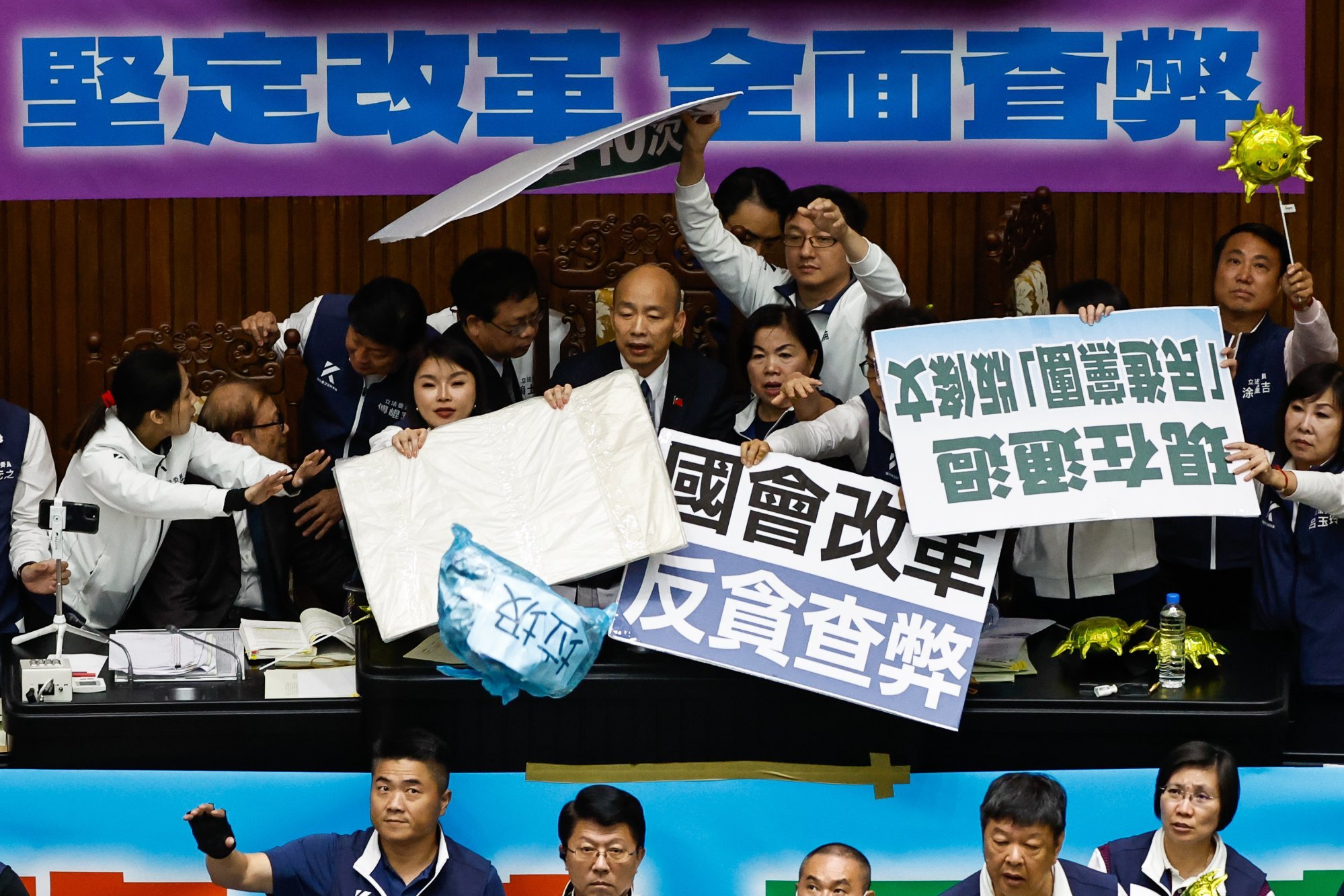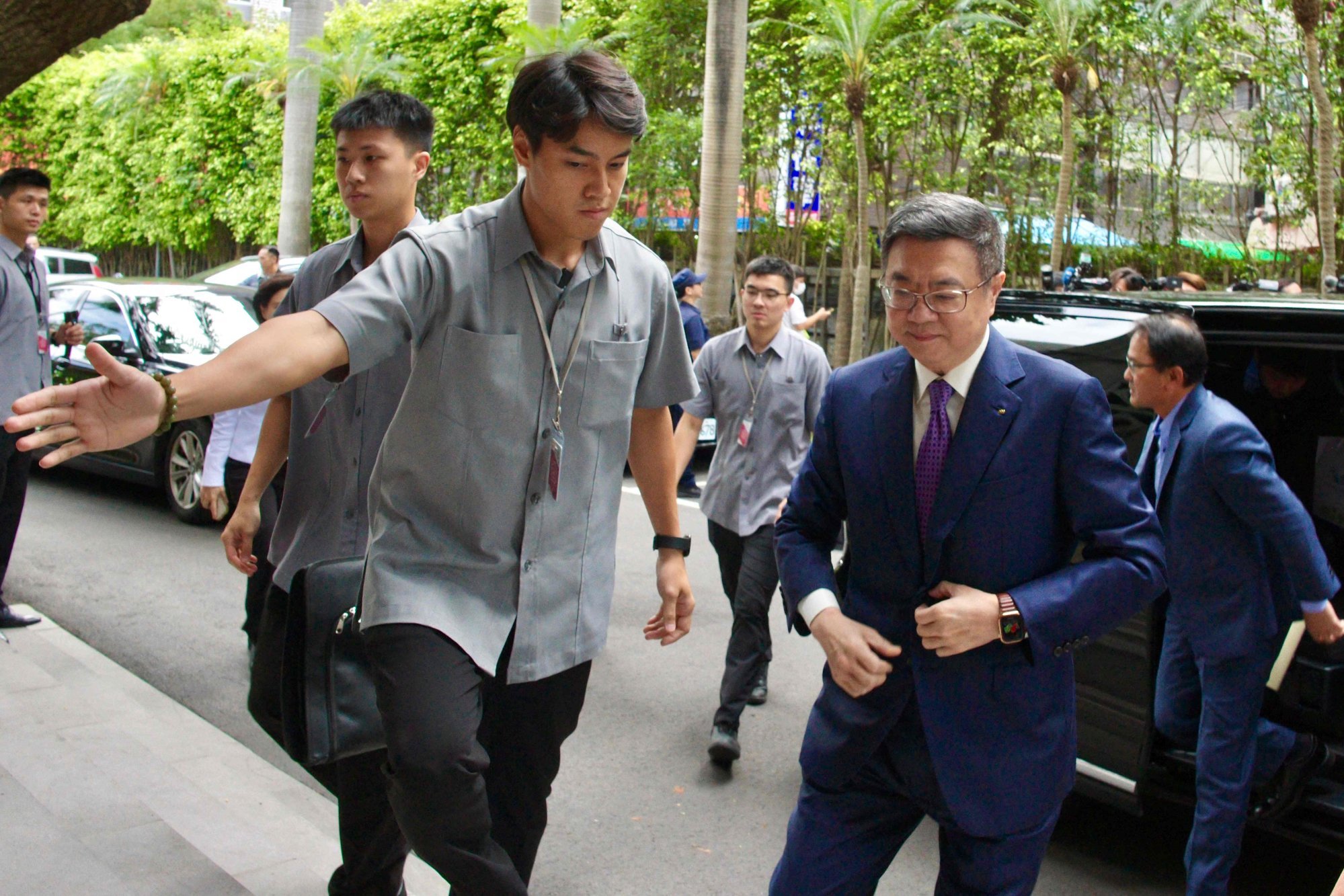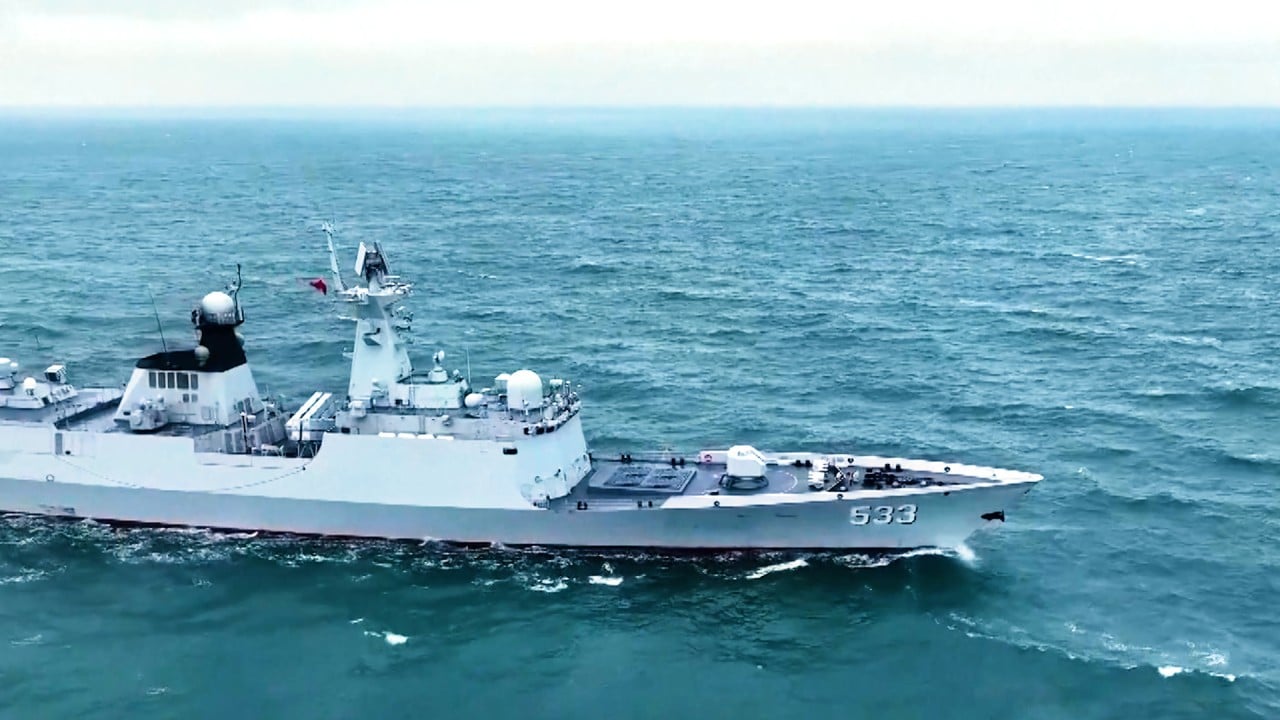The opposition’s legislative package moves the Taiwanese legislature closer to holding an oversight role similar to the US Congress, with measures that include an expansion of lawmakers’ investigative powers.
The new laws establish “contempt of the legislature” as an offence, with a maximum penalty of a NT$200,000 (US$6,170) fine.
This will criminalise public officials and civil servants who provide false statements to hearings or when questioned by lawmakers on important matters of which they have knowledge.
The legislature also won the authority to request information and related documents from government agencies, the military, legal entities, associations, or other relevant individuals. Failure to comply, delayed responses, or intentional concealment of pertinent information may result in fines of up to NT$100,000 (US$3,000).
The new legislation requires the president to deliver an annual address on the state of the island before March 1 and respond to lawmakers’ questions. It also mandates that appointments to key government positions be made through open ballots.
Each stage of the bills’ passage was marked by DPP protests inside and outside the legislature. The party’s lawmakers described the package as an “abuse of power” and a “serious violation of the constitution”.
Thousands of DPP supporters rallied outside the legislature on Tuesday, condemning the opposition lawmakers for pushing through the legislation and accusing them of a “black box operation” with no thorough line-by-line scrutiny of the bills.
Protesters accused the opposition of acting in accordance with directives from mainland China to undermine democracy in Taiwan and reprimand the Lai government.
“We must not allow the Chinese Communists to manipulate our parliament to undermine Taiwan,” said Robert Tsao Hsing-cheng, former founder of chip maker United Microelectronics Corporation and a vocal critic of Beijing, during the protest.
Tsao alleged that KMT caucus leader Fu Kun-chi initiated the bills under instructions from mainland authorities, citing his April visit to Beijing where he and his delegation members met Wang Huning, head of the mainland’s top political advisory body.
According to Tsao, the “power exploitation bills” are intended to restrain Lai “and admonish his government”.
Beijing has labelled Lai as an “obstinate separatist” and warned that his leadership could lead to conflict in Taiwan, which it has vowed to bring under mainland control, by force if necessary.
Lai’s inaugural speech sparked a furious response from Beijing, which viewed it as replete with pro-independence sentiments – a red line that the mainland leadership says must not be crossed.
Most countries, including Taiwan’s main arms supplier the United States, do not recognise the island as an independent state but Washington is strongly opposed to any attempt to take it by force.

In a statement on Wednesday, the KMT underscored that the legislative reform is “100 per cent a matter of Taiwan’s domestic affairs,” aimed at upholding the democratic process of checks and balances between the executive and the legislature.
The statement emphasised that the DPP had advocated for the direction of the reform while in opposition.
It also highlighted that the scrutiny process was “accompanied by a comprehensive and lawful bill scrutinising procedure [which] provides guaranteed legal proceedings and a judicial relief system for people’s interests”.
KMT spokeswoman Yang Chih-yu said accusations that the reform “favours the Chinese Communist Party, restricts the power of the president and that of the executive branches to benefit mainland China … are absurd”.
On Thursday, Cho Jung-tai – Lai’s pick as premier, whose role includes appointing and leading the cabinet which executes the leader’s policies and proposes legislation – reiterated the cabinet’s intent to return the bills to the legislature for reconsideration.
The DPP caucus has said that it will seek a ruling from the grand justices on Taiwan’s Constitutional Court on whether the bills violate the constitution, which does not mandate the leader of the executive to address the legislature or respond to questions.
According to the island’s constitution, the power to investigate the government and officials rests not with the legislature but with the Control Yuan, Taiwan’s highest ombudsman that has powers of impeachment, censure and audit, the DPP argues.

Analysts cautioned that the bills’ passage has caused a rift in the legislature, which will not only impede parliamentary operations but also hinder the progress of government budget reviews and legislative initiatives sought by the Lai administration.
Huang Huei-hua, head researcher at the Taiwan International Strategic Study Society think tank in Taipei, noted that foreign minister Lin Chia-lung was one of the DPP lawmakers who proposed similar reforms in 2012 when his party was in opposition.
It will be “challenging” for the DPP to justify its opposition to the reform bills, especially considering that it previously advocated for similar reforms, she said.
“Given that no political party holds an absolute majority, division in the legislature is inevitable.”
Huang anticipates that conflicts will arise from time to time over certain bills the Lai administration seeks to pass or reject, unlike when the DPP held the majority and could easily pass legislation.
James Yifan Chen, a professor of diplomacy and international relations at Tamkang University in New Taipei, said that Lai and the DPP should learn to respect and compromise with the opposition to ensure the government’s smooth operation.
“Passing legislature reform bills with the coalition between the KMT and the TPP in the Legislative Yuan means this newly-elected parliament reflects people’s demand for more checks against the executive branch.”
With just 40.5 per cent of the votes in January’s presidential election, Lai – who also heads the DPP – and his party “should mutually respect mainstream opinion,” he said.
Chen noted the cabinet can veto the bills by sending them back to the legislature for reconsideration, but said such action would be ineffective due to the DPP’s minority position.
If Cho chooses to veto the bills, “lawmakers can vote to overrule the veto with a simple majority, which the opposition has enough votes to secure”, he said. If the veto request is overruled, Cho – who has only been in office for 10 days – would be compelled to comply or resign, in line with the rules.
“The only way for the Lai administration to dodge the bills is to ask the Constitutional Court to interpret if [they] are unconstitutional or not,” Chen said, but he cautioned any of these moves would have “a negative impact on relations between the executive and legislative branches”.
Analysts dismissed as far-fetched the allegations that the reform bills are part of a Beijing scheme to disrupt the legislature and undermine the Lai administration.
“These bills mostly learn – and even copy from – the US Congress. Unless the US Congress also facilitates more Chinese control, such an accusation is absurd and lacks a real understanding of the context of these bills,” Chen said.
He added that, by performing their duties well, “the KMT and the TPP will show Taiwanese voters who is always using China as an excuse”.
In Huang’s view, the focus had been taken off the deliberation of the reform bills. “The issue lies in procedural problems and the moral flaws of both the KMT and TPP legislative caucus head Huang Kuo-chang, which have left the public dissatisfied,” she said.
Previously seen as an ally of the DPP, Huang left the hardline pro-independence New Power Party – which he had chaired – to join the TPP, prompting discontented DPP supporters to single him out during their recent protests.
“The protests also highlight the supporters’ deep distrust of the KMT. Anything related to the KMT, right or wrong, will provoke their anger,” Huang said.
She also noted the cumulative effect of KMT caucus leader Fu’s April visit to Beijing, the PLA’s military exercises – in response to Lai’s inaugural speech – that simulated a blockade of the island, and the legislative showdown.
“[These] have all added the factor of China into the mix,” Huang said.
Compounding Lai’s trouble with the legislature, allegations that the DPP spied on protesters using mobile phone signal data have added to the political storm facing the government.
In a political talk show on Tuesday, the DPP’s policy director Wang Yi-chuan revealed that he was able to differentiate the political leanings and ages of the individuals present at the recent protests in front of the legislature, through that data.
Wang said he could also compare the people in the crowd with those at an election eve rally in January and those who attended a TPP event on May 19. His remarks led to a public outcry and calls for accountability.
“The incident has brought yet another political storm to the Lai government as it has to explain whether it had done this or not,” said Ho Chih-yung, a professor of general education at National Tsing Hua University in Hsinchu, south of Taipei.
“Most embarrassingly, the DPP has consistently criticised mainland authorities for disregarding public privacy by openly spying on its people.”
Ho said that the incident served to justify the passage of the reform bills aimed at enhancing oversight of the government, enabling lawmakers to question officials and assess information about alleged scandals.








